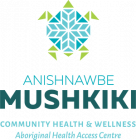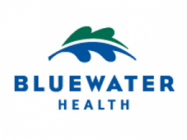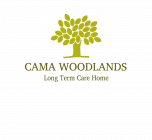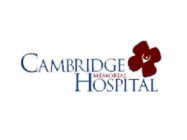Oral Health: Supporting Adults Who Require Assistance
Purpose and scope
The purpose of this best practice guideline (BPG) is to provide nurses, the interprofessional team and caregivers with evidence-based recommendations for the provision of oral care for adults (18 years of age and older) that will:
• promote an interprofessional approach to providing oral care,
• enhance the delivery of oral care interventions, and
• ultimately lead to positive oral health outcomes for persons.
This BPG focuses on providing oral care across health settings to adults (18 years and older) who require assistance with oral care in a continuum that ranges from the set-up of oral care supplies to full physical assistance with oral care. This BPG provides recommendations to support the delivery of oral care— including appropriate supervision, prompting and assistance—while still advocating for the person’s independence and autonomy.
Get started
Who's using this?



Registered Nurses’ Association of Ontario (RNAO). Oral health: Supporting adults who require assistance. 2nd ed. Toronto (ON): RNAO; 2020.
Recommendations
Do you want to learn about and implement the most- up-to-date evidence-based recommendations on this topic with your colleagues? Download and share the full best practice guideline (BPG), Oral Health: Supporting Adults Who Require Assistance.
See below for a snapshot of the recommendations from this BPG. We strongly suggest you review the full BPG before implementing the recommendations and good practice statements. The BPG also includes further resources to support implementation and evaluation.
Good Practice Statement: The expert panel recommends that, as part of their admission assessment, health providers obtain and document a person’s:
- oral health history;
- current state of oral health; and
- oral hygiene beliefs and practices, including their self-care abilities.
Recommendation 1.0: The expert panel suggests that health providers follow a multi-component oral care protocol that includes:
- an oral health assessment using a standardized approach and/or validated tool appropriate to the person and health setting;
- an individualized oral care plan;
- step-by-step instructions for oral care, including tooth and denture brushing; and
- identification of required oral care tools and supplies.
Recommendation 2.0: The expert panel suggests that health providers educate persons and caregivers on the following topics:
- oral health and the benefits of oral care;
- oral care techniques and procedures using return demonstration;
- establishing oral care practices; and
- how to use oral care tools and/or supplies.
Recommendation 3.0: The expert panel suggests that health providers use person-centred approaches to provide oral care to persons who are behaviourally complex, including:
- environmental adaptations;
- verbal and/or non-verbal communication strategies; and
- selection and modification of oral care tools and supplies.
Recommendation 4.0: The expert panel suggests that health providers document specific successful strategies and techniques in an individualized oral care plan that can be used when providing oral care to persons who are behaviourally complex.
Recommendation 5.0: The expert panel suggests that academic institutions implement interprofessional oral care education for students entering health professions.
Recommendation 6.0: The expert panel suggests that health-service organizations provide education and training on oral care to health providers facilitated by an oral health professional. Education and training includes:
- theoretical oral health knowledge, including the definition of oral health, the risk factors for oral diseases and the methods of preventing them; and
- practical oral care skills, including toothbrushing and denture cleaning techniques.
Recommendation 7.0: The expert panel suggests that health-service organizations provide education to health providers that includes interactive hands-on training to identify and implement strategies and techniques that can be used when providing oral care to persons who are behaviourally complex.
Recommendation 8.0: The expert panel suggests that health-service organizations implement an interprofessional approach for the provision of oral care.
Disclaimer: These guidelines are not binding for nurses, other health providers or the organizations that employ them. The use of these guidelines should be flexible and based on individual needs and local circumstances. They constitute neither a liability nor discharge from liability. While every effort has been made to ensure the accuracy of the contents at the time of publication, neither the authors nor the Registered Nurses’ Association of Ontario (RNAO) gives any guarantee as to the accuracy of the information contained in them or accepts any liability with respect to loss, damage, injury or expense arising from any such errors or omission in the contents of this work.
Revision status
Current edition published: May 2020
This BPG replaces the RNAO BPG Oral Health: Nursing Assessment and Intervention (2008).
Help shape BPGs
Contact
Contact us for any questions.



